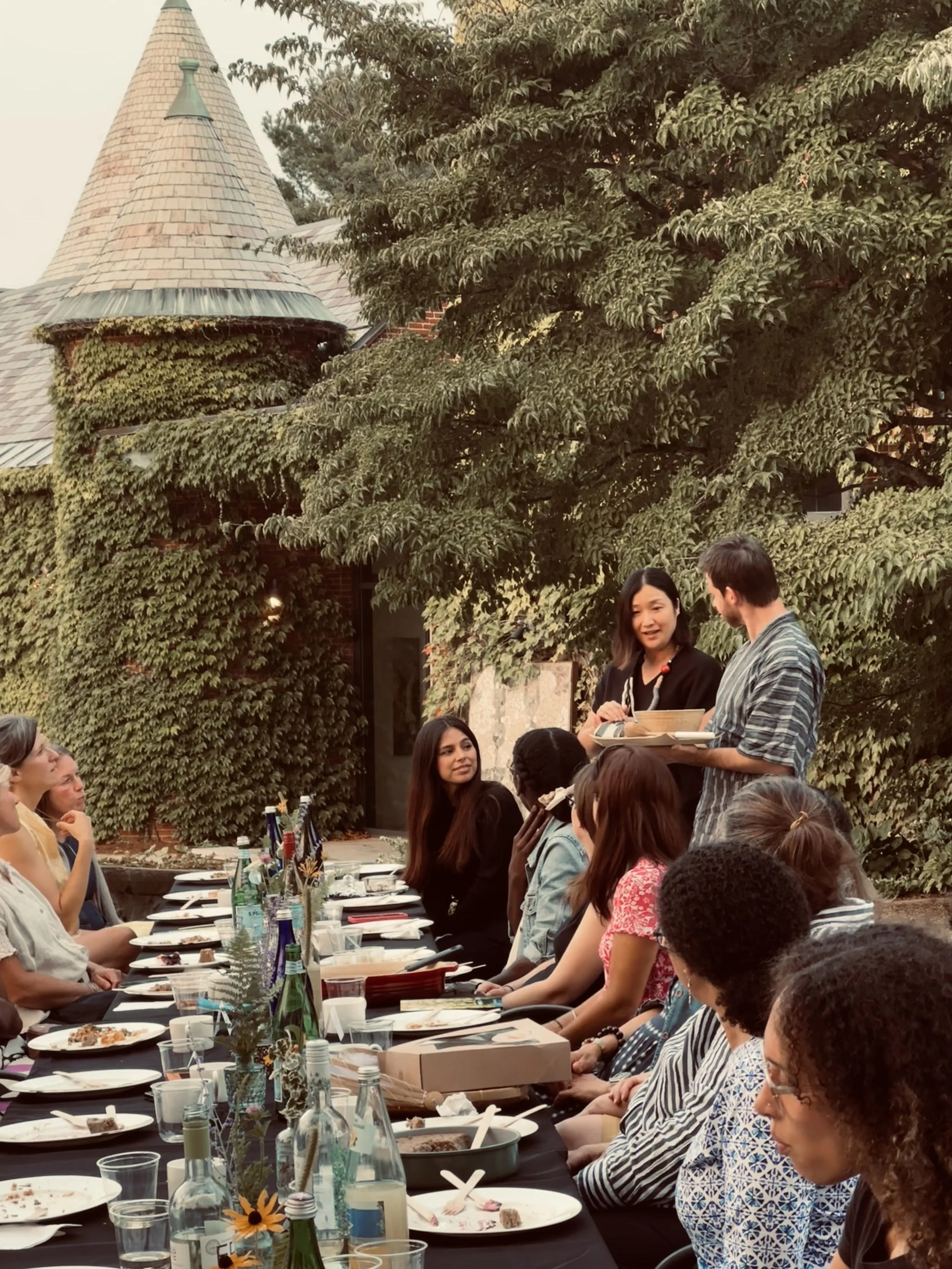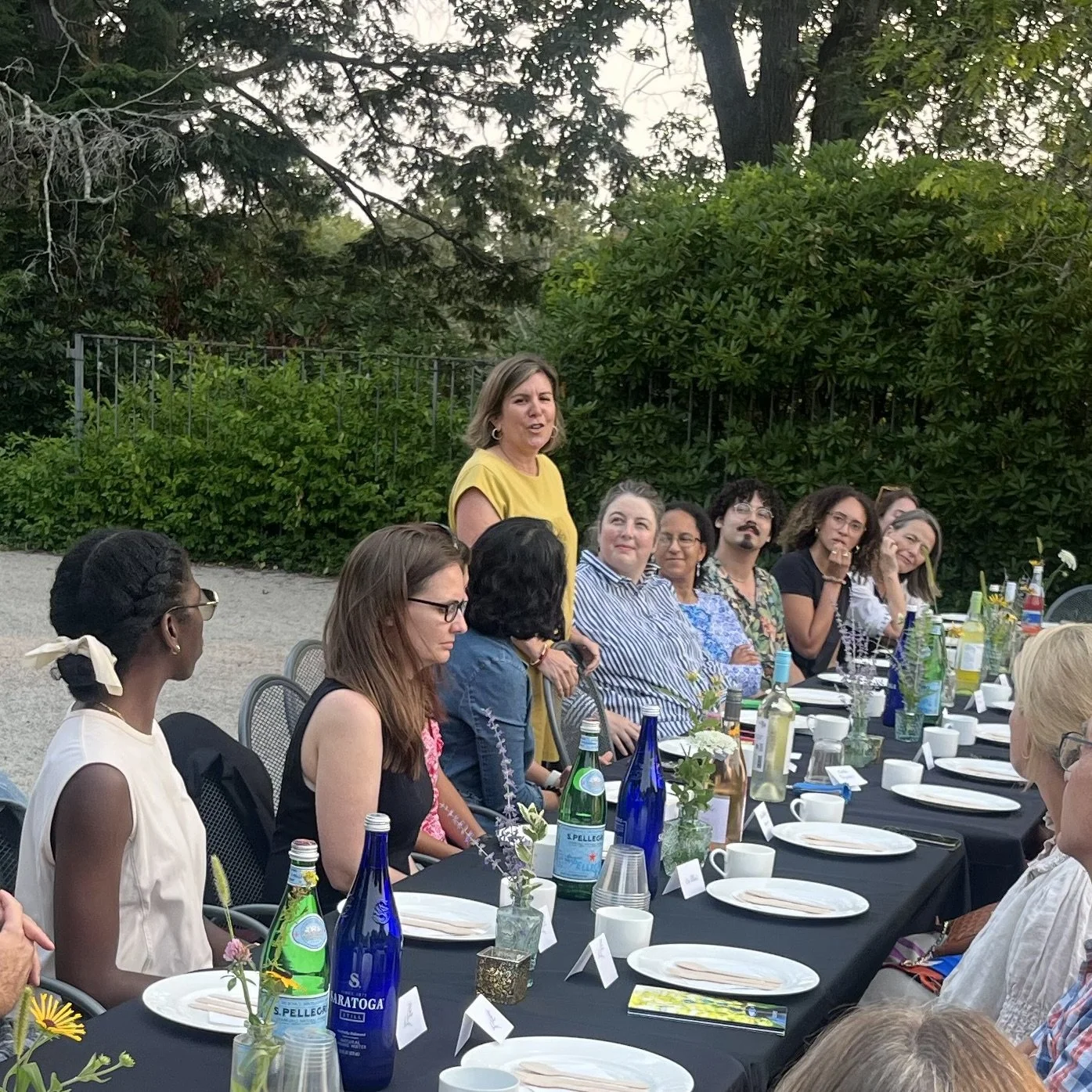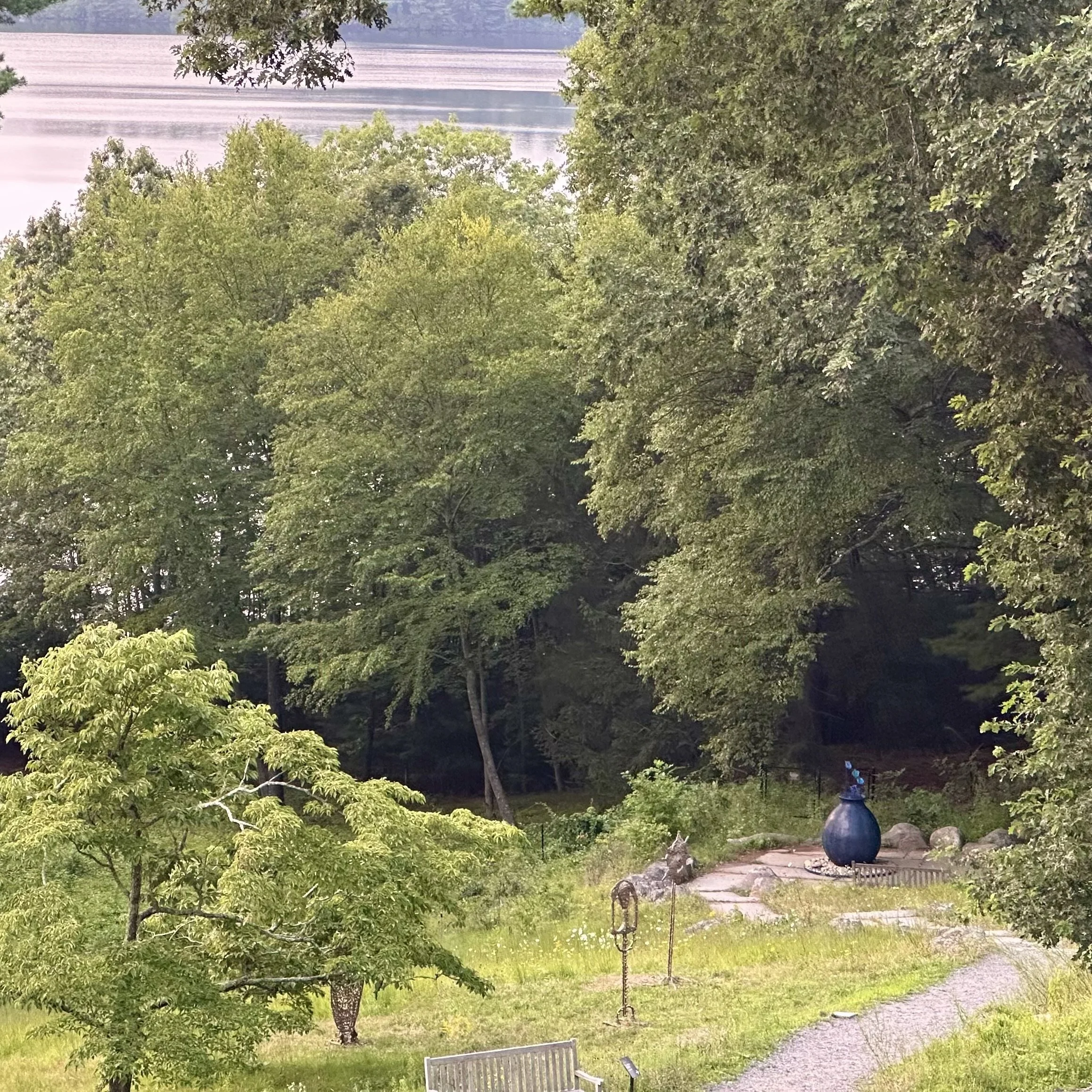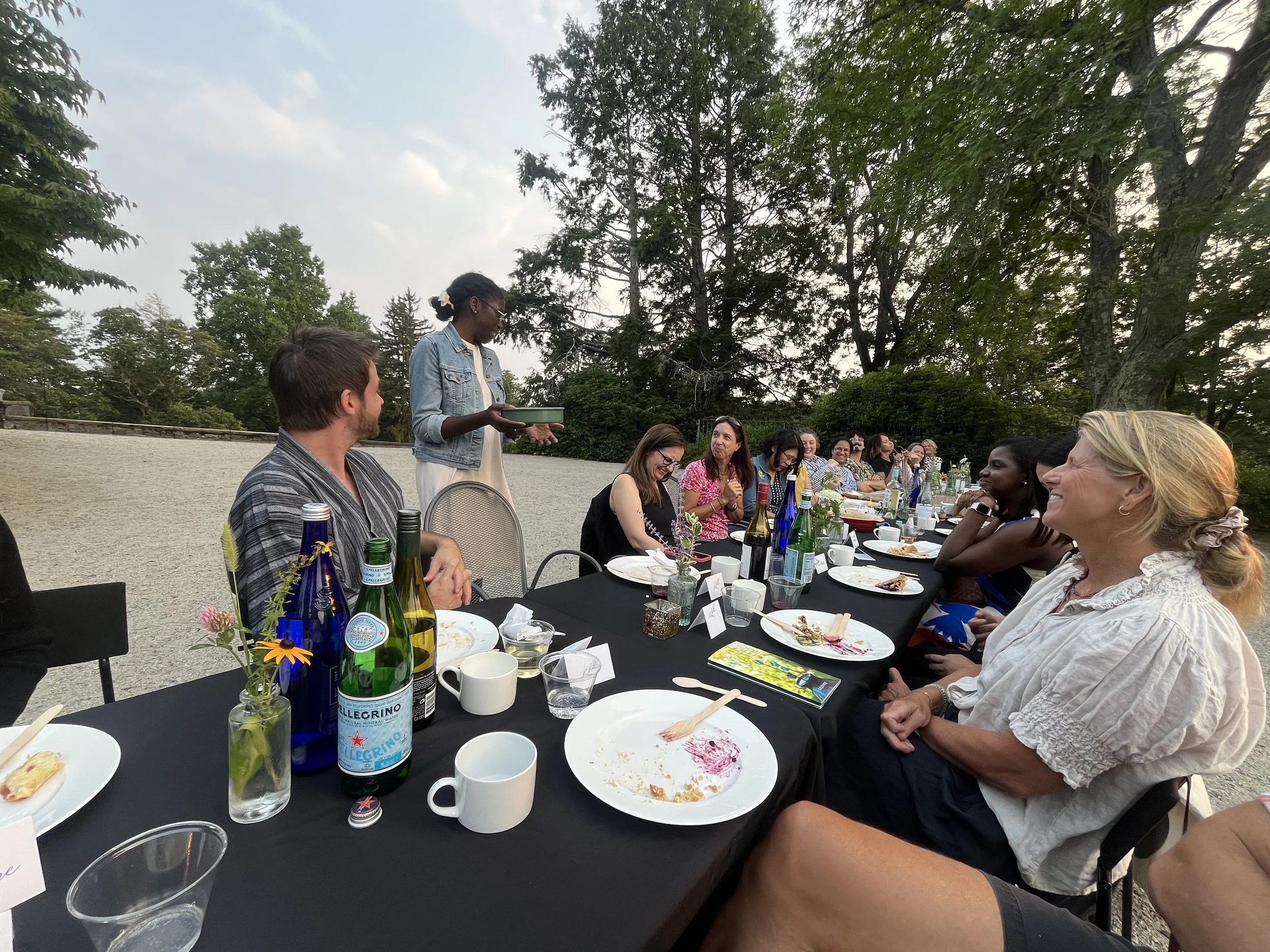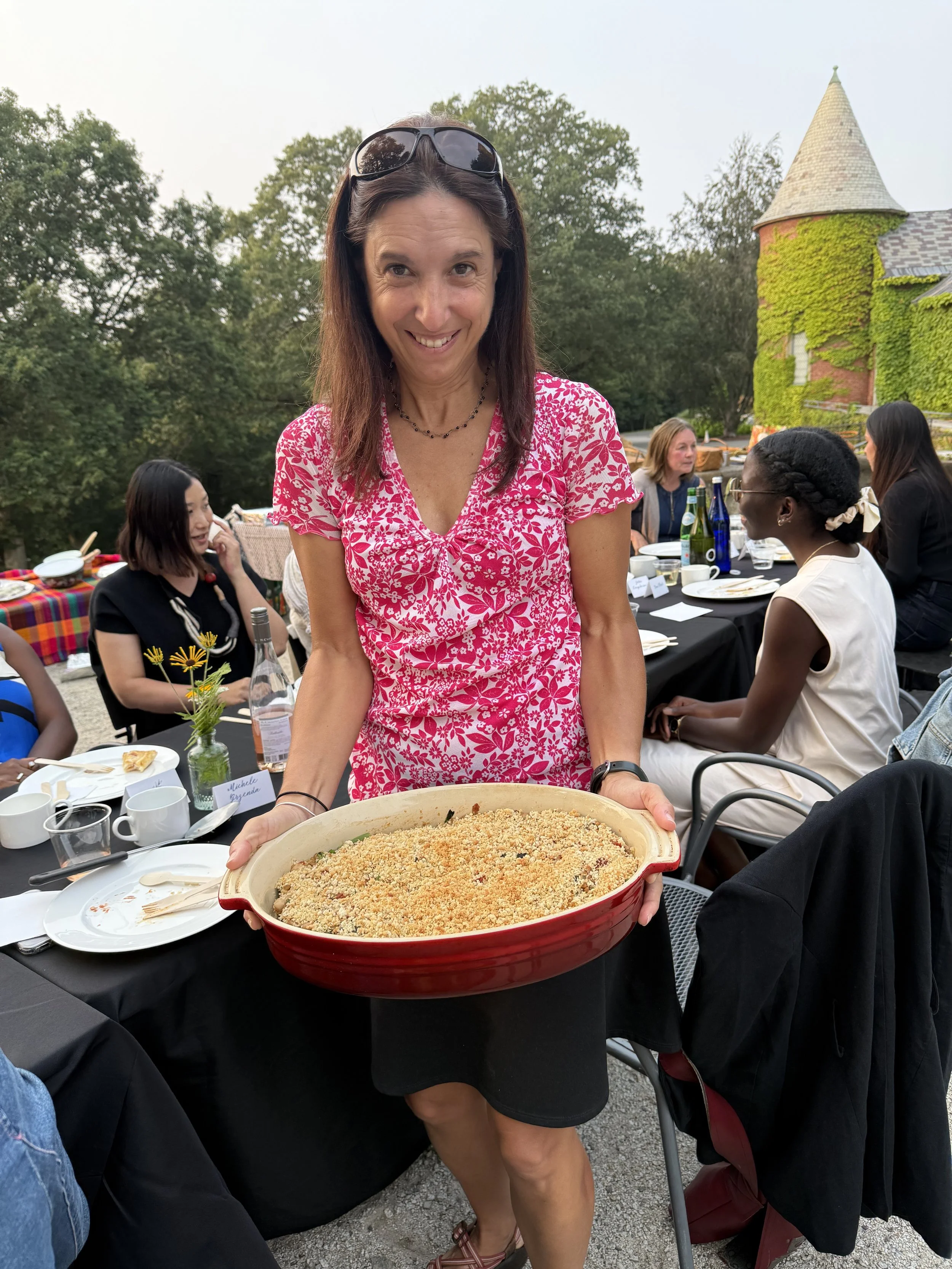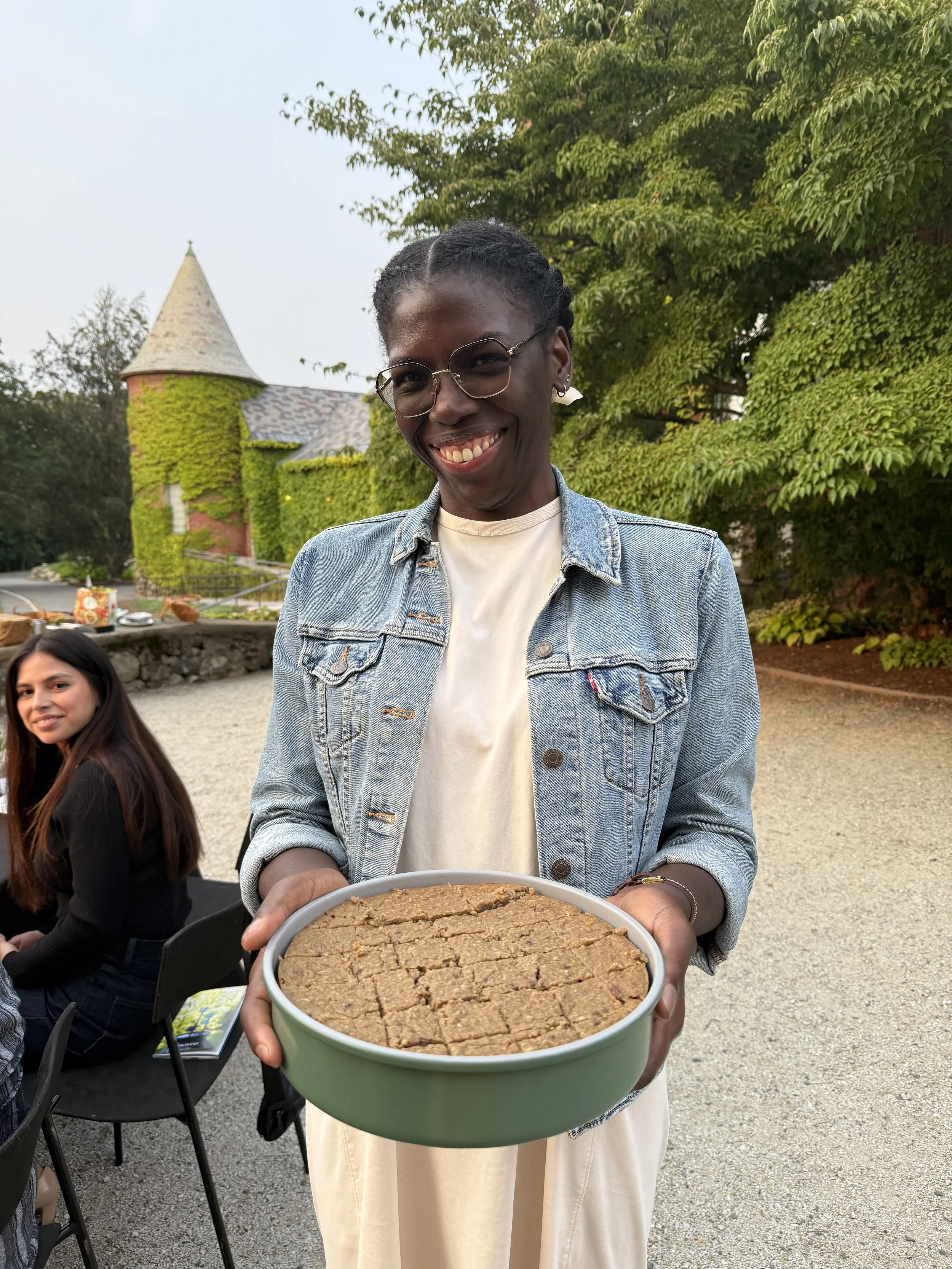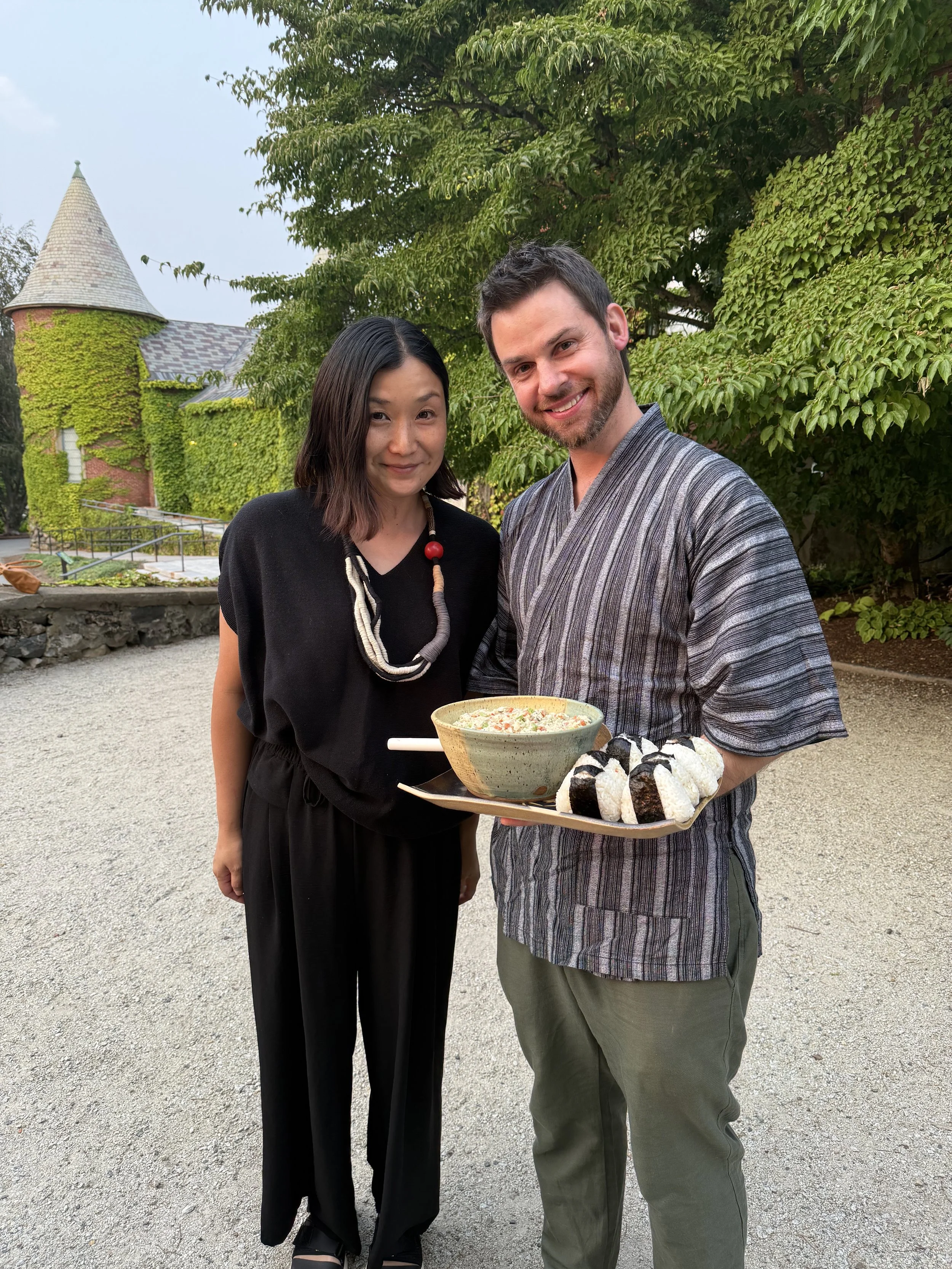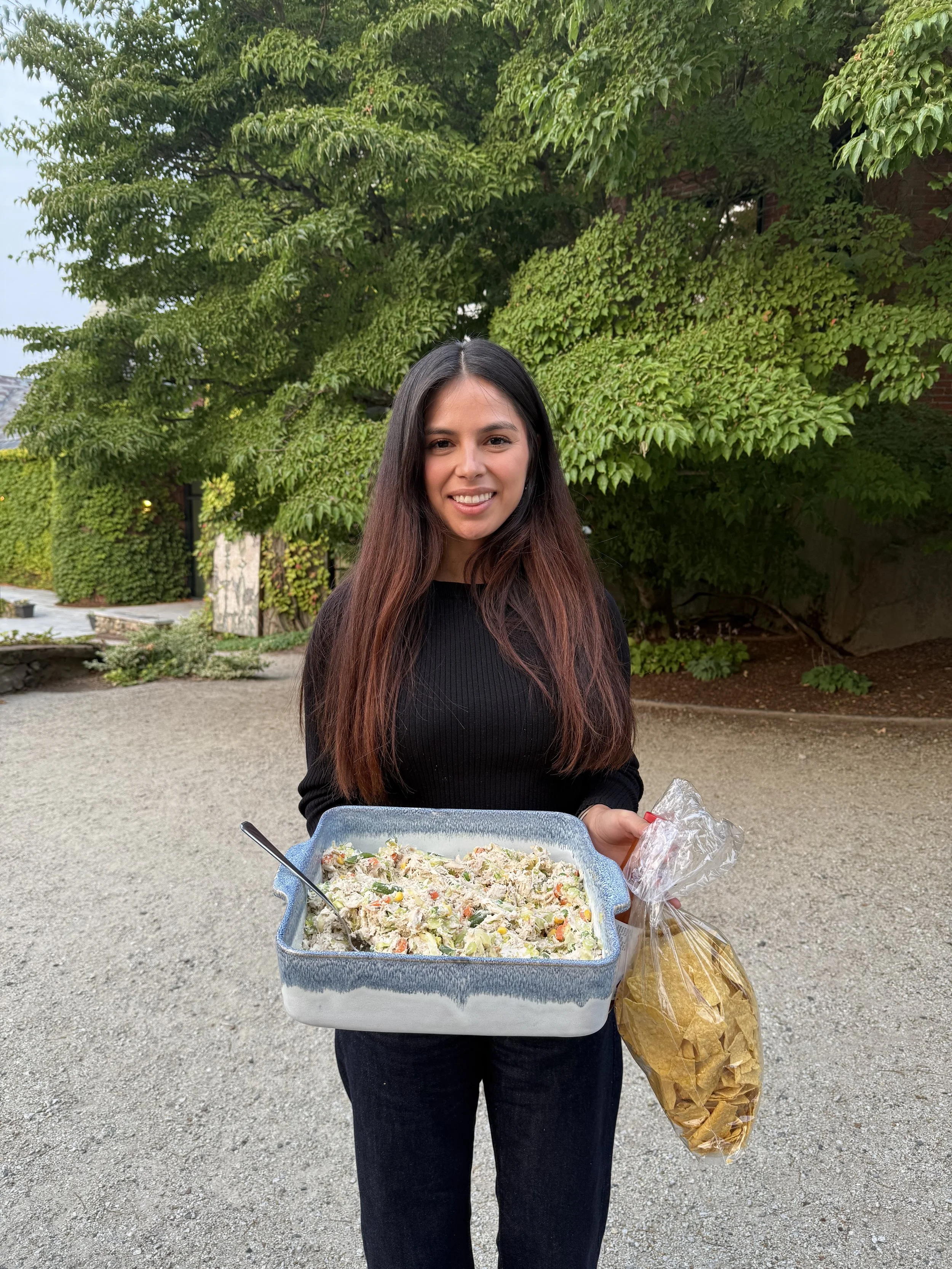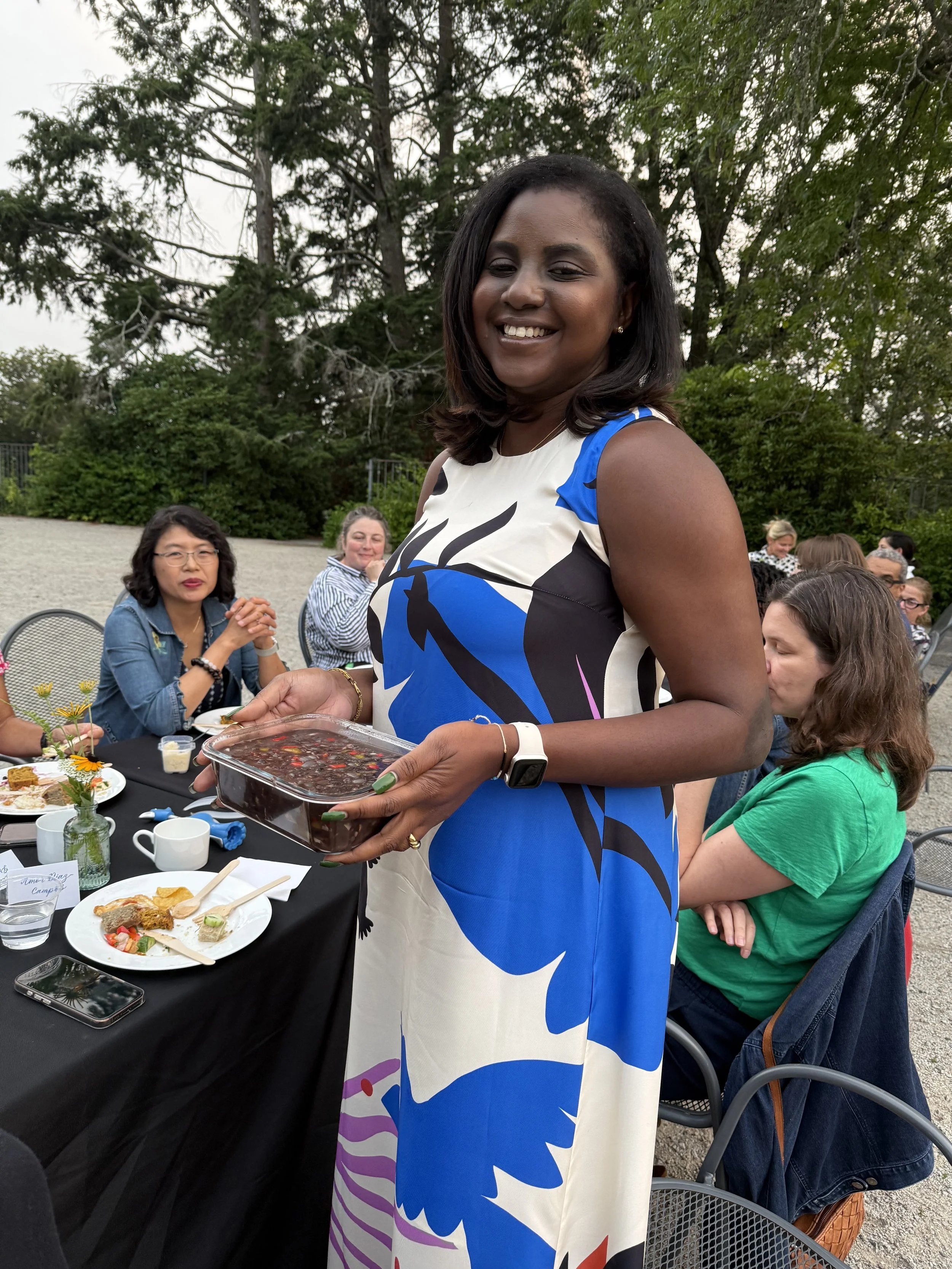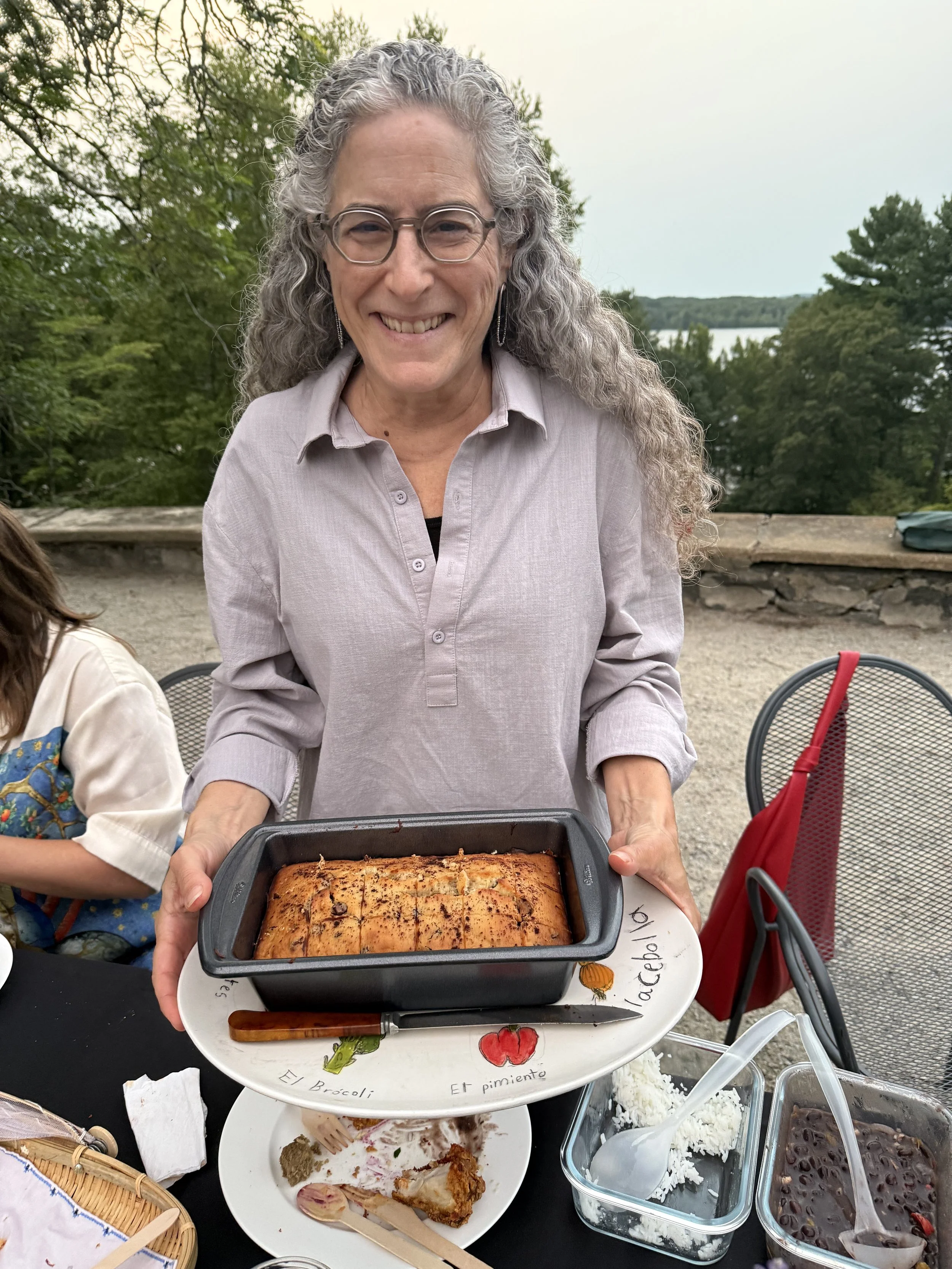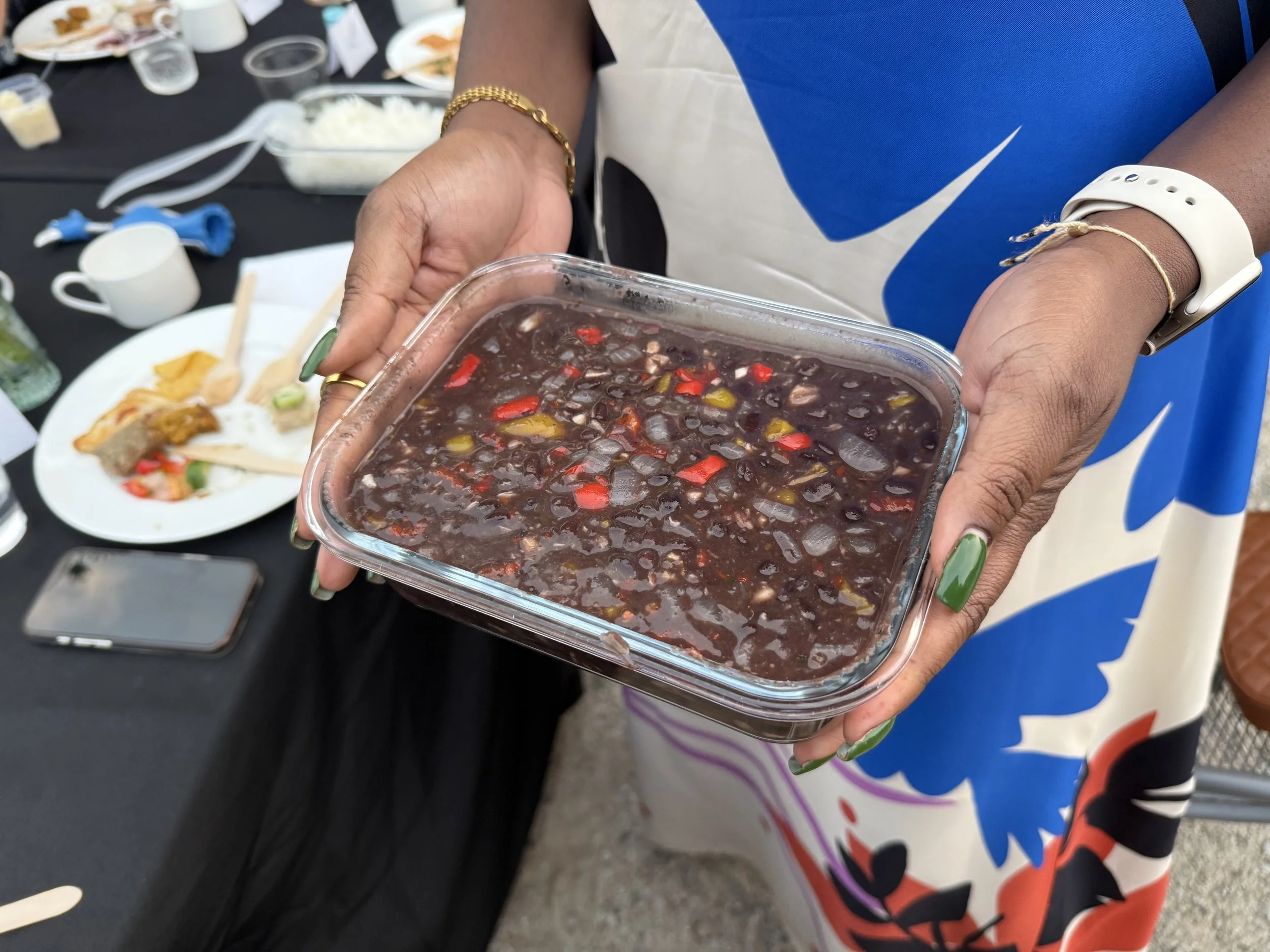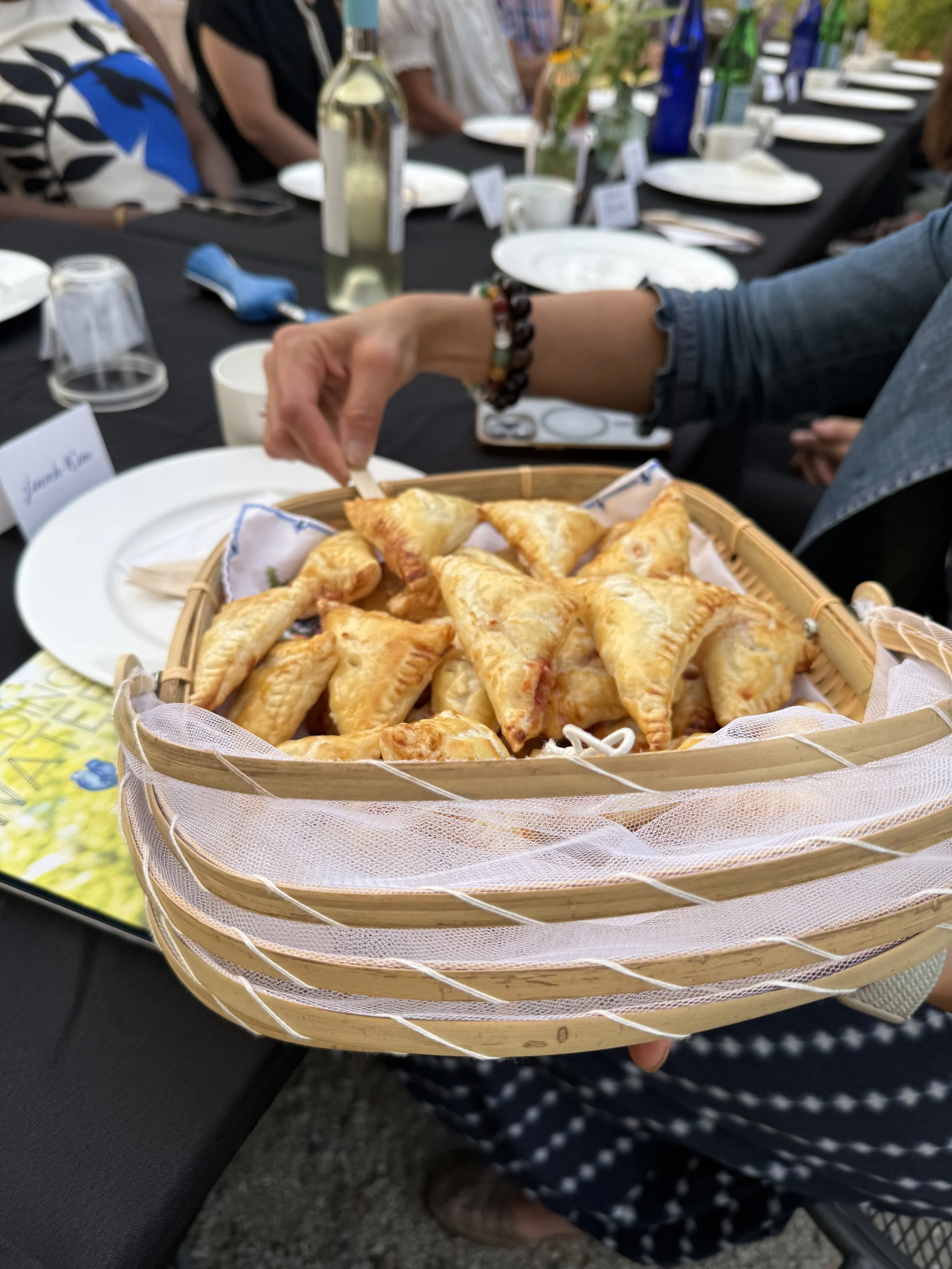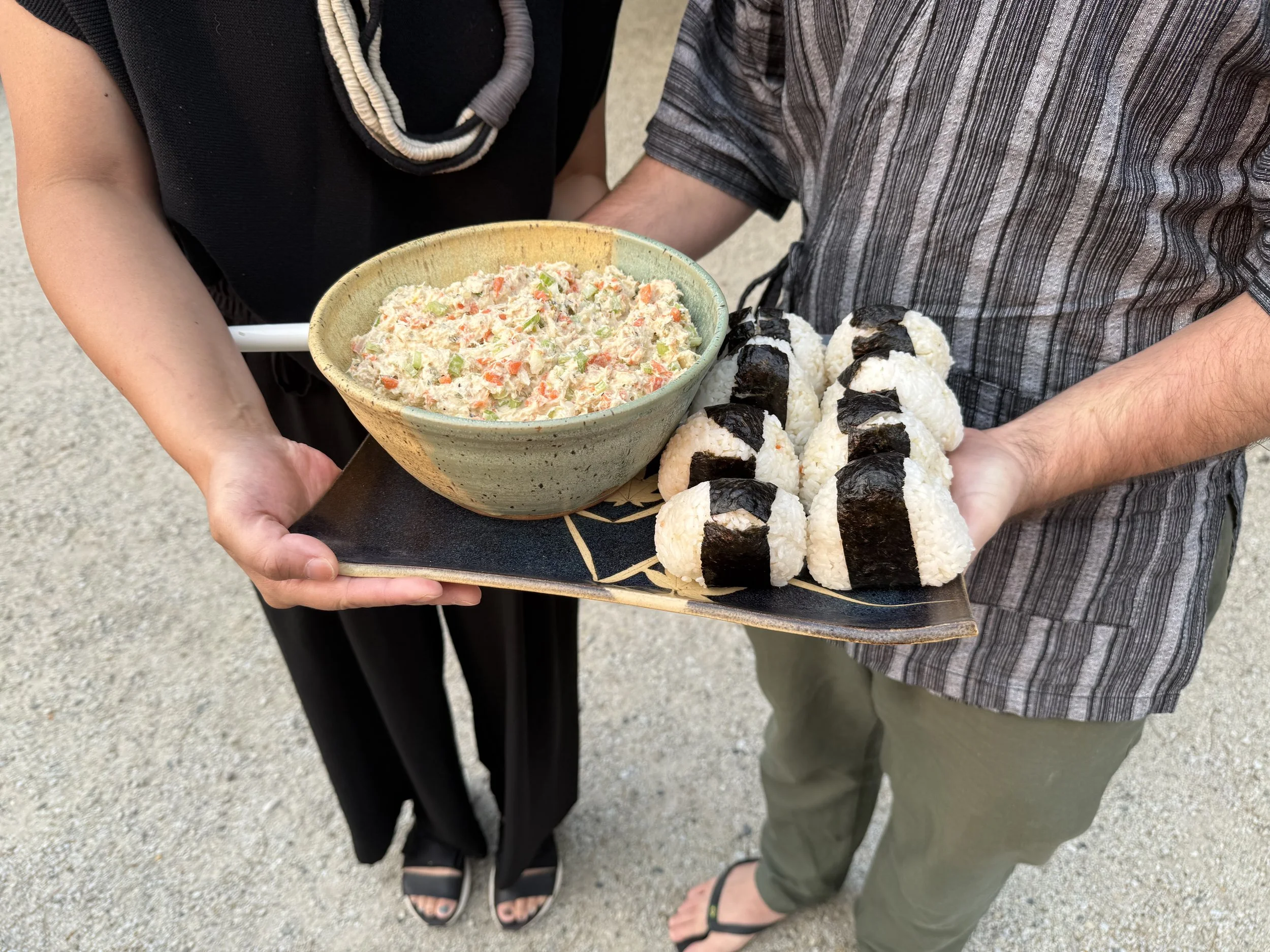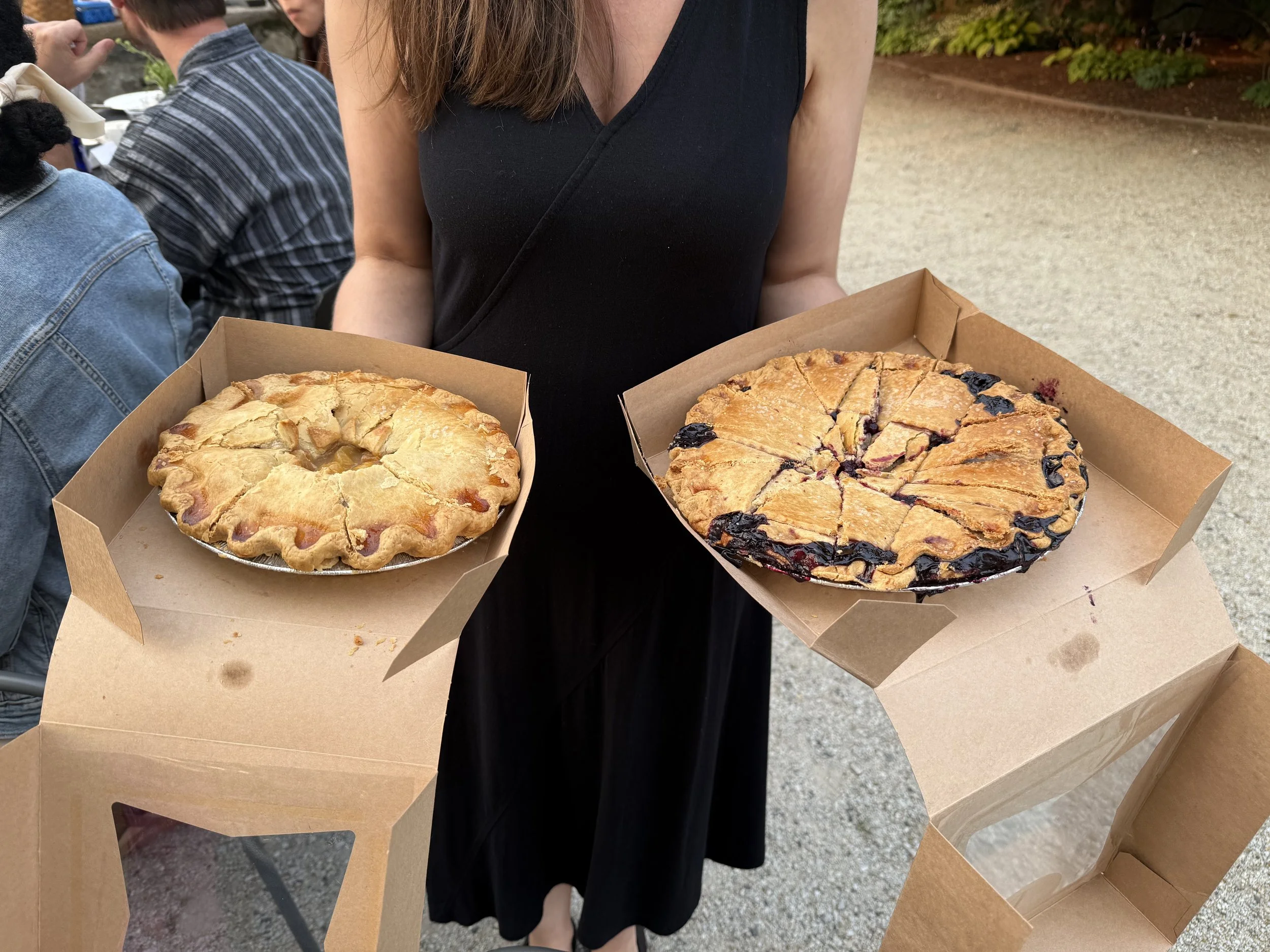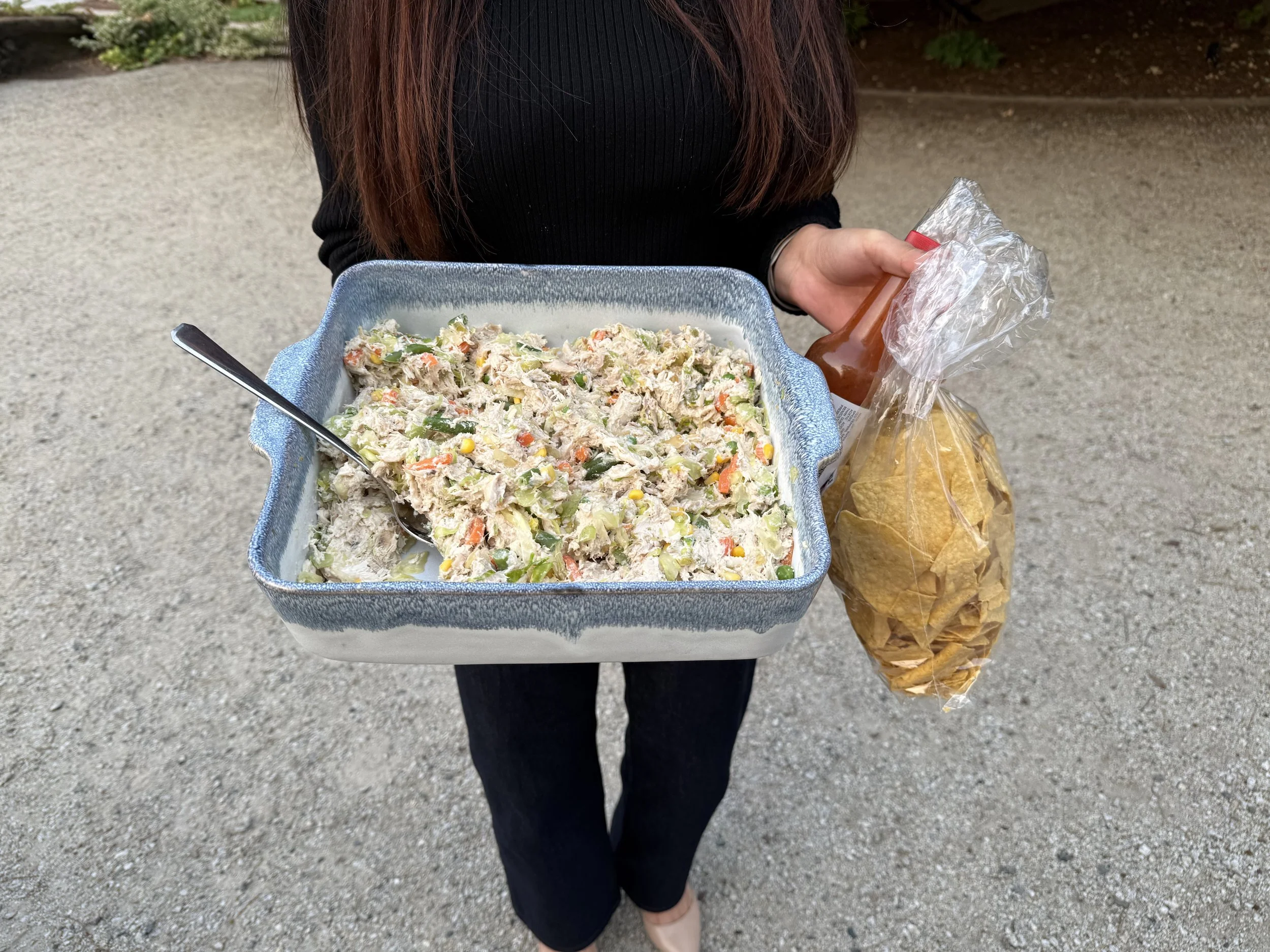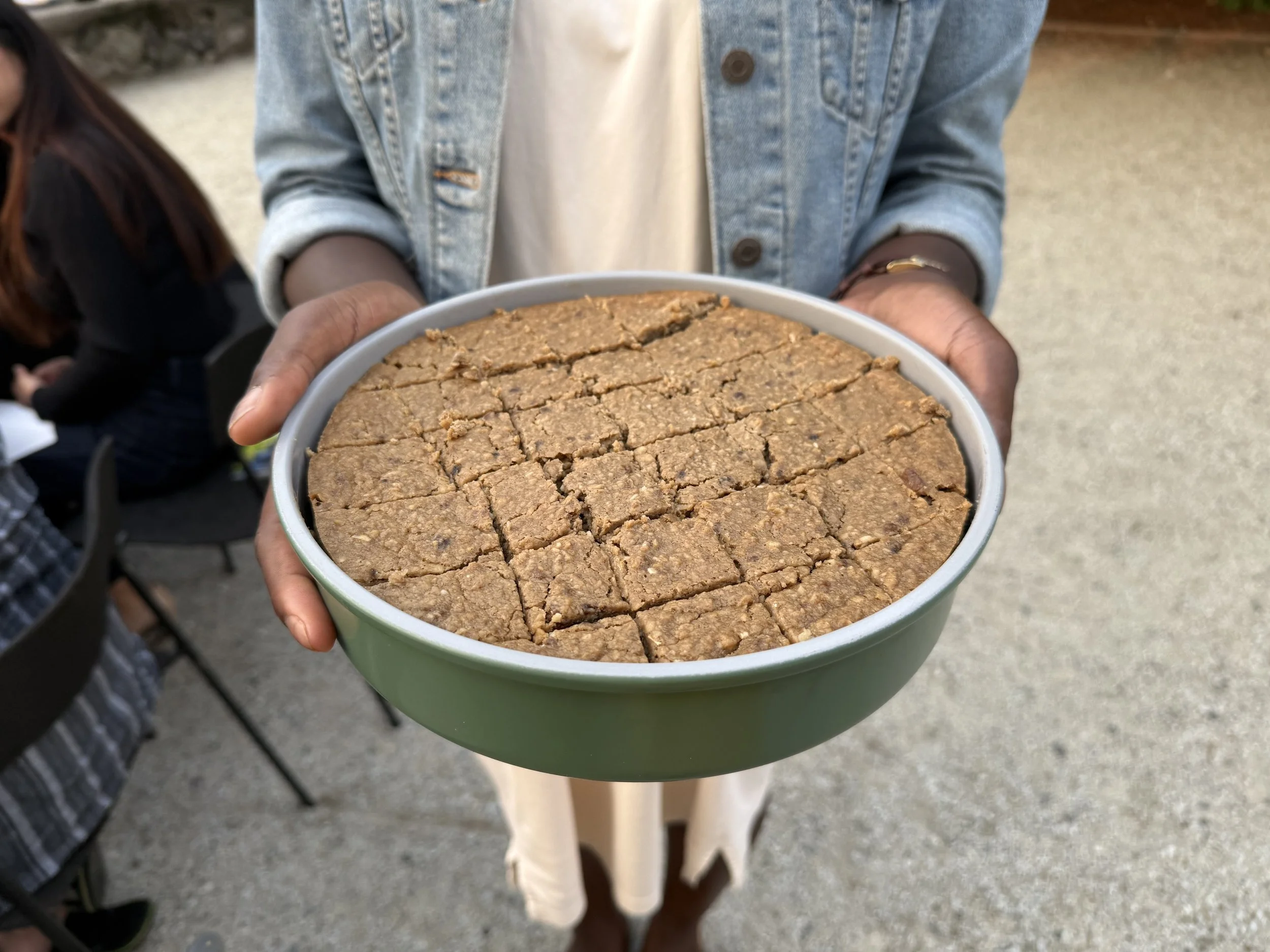Comida Casera: Food as Story, Connection and Home
Stories hold enormous power. They breathe life into our human experience and propel its innumerable, intimate details from one generation to the next. Stories form around memories and connect us to home. Like water carrying nutrients to cells in the body, our stories carry the truths of the past.
Evelyn Rydz welcomes the group and shares her story. Photo by Sarah Montross, Museum Director and Chief Curator deCordova Sculpture Park and Museum.
Under threat of censorship and erasure, family and community stories become even more cherished, they are generous gifts shared between friends. Perhaps this is why artist Evelyn Rydz’s recent Comida Casera dinner at the deCordova Sculpture Park and Museum felt especially magical. As situations continue to worsen for immigrants here and around the world, local interventions become more than just enjoyable—they are critical.
Comida Casera is a multigenerational, participatory project that Rydz started in 2016 to bring people together around a table to share family histories through the food that most connects them to home.
Rydz’s body of work explores migration, identity, climate and resiliency as understood through studies of water. Her sculpture Holding Water is part of the deCordova’s exhibition Nature Sanctuary which is on view in the park through October 4, 2026. She enlisted the help of local environmentalists, casting their hands in blue glass to top the large steel and concrete vessel. As the deCordova explains, “The glass hands are positioned in relationship to each other to suggest a passing of responsibility and knowledge across generations and among communities.”
Comida Casera undertakes a similar quest of passing knowledge and responsibility, and adds the building of an archive of local testimonies, many from immigrants and first generation Americans. The stories shared exemplify what makes America special and food provides a natural—and delicious—medium.
Evelyn Rydz, Holding Water (2025) at the deCordova Sculpture Park and Museum. Holding Water is included in the deCordova’s show Nature Sanctuary on view through October 4, 2026. Photo R Hauck.
“A first generation American, with parents from Cuba and Colombia, in my experience food and storytelling have served as connective mediums linking people and places of the past with those of the present, and shaping questions of what we choose to pass on to future generations.”
The deCordova gathering was co-sponsored by Sarah Montross, Museum Director and Chief Curator of the museum and sculpture park. About thirty people, including artists, writers, museum staff and local environmental activists, came with a shared commitment to honest storytelling. It’s not often we get a chance share memories of the people who created a sense of home and belonging in our lives.
Visual artist Zainab Sumu brought akara, a dish from Sierra Leone made with banana and rice flower, which she explained was inspired by her mom who made plantains and akara for her “when she wanted to bring me in.” Jinah Kim, a Professor of Indian and South Asian Art at Harvard, made chive pancakes in honor of a friend going through chemo. Christina Couch, Associate Director of the MIT Graduate Program in Science Writing, brought pie in honor of her husband who bakes every year for her birthday despite a disability that makes cooking difficult. These are just a few of the many home-made dishes shared.
Stories bring smiles. Photo by Sarah Montross, Museum Director and Chief Curator deCordova Sculpture Park and Museum.
Comida casera translates from Spanish as home cooking. For Rydz, it also means made with love and made to heal. The artist has been hosting these gatherings since 2016 when she decided to create a shared opportunity for active listening, a space in which to transcend social divides. Hosted everywhere from Rydz’s backyard to museums, libraries, universities, and—during the pandemic—the web, Comida Casera events have united hundreds of storytellers from five continents and over thirty countries. Inspired by stories shared during the pandemic, Recetas de Casa is “an online series of healing recipe exchanges from and about home.” You can send an email to the artist to request access to the full digital cookbook.
The participatory covenings have always been important catalysts for cross-cultural learning and psychological support. But in August of 2025, for people whose lives revolve around creative expression, an inclusive celebration encouraging tales of diverse rememberings was an especially meaningful event. Excitement and defiance were ingredients mixed into each reminiscent, celebratory dish. Everyone at the table knew what was at stake. At a time when the current administration is actively threatening free expression in protests, journalism and museums, sharing stories of family, place and sustenance felt almost like a radical act.
As the Trump administration attempts to erase history through the banning of books in schools; rewrite the past through the elimination of words such as abortion, women, disability, Native American, feminism, fetus, and inclusivity from federal websites and documentation; disenfranchise minorities by canceling Black History Month and Women’s History Month celebrations; and force a false narrative about US history down the throats of visitors to Smithsonian museums, Comida Casera represented a safe space for people from all over the world to talk openly about their immigrant stories and remember the food, people and places that make them who they are.
“Comida Casera aims to build community across divides, honor immigrant stories, highlight the communities and ecosystems that have shaped our sense of home, encourage environmental stewardship through connections to land, water, and food, and celebrate differences while emphasizing common ground.”
Under the stars outside the DeCordova Museum’s majestic building, people whose parents were born in all corners of the world came together to break bread and share their stories. Comida Casera engenders trust between strangers. Once you sit at the table, listen and share, you are no longer strangers, you are friends.
Here is a list of the dishes shared at the deCordova dinner this August:
- Pastelitos de guayaba y queso (Evelyn)
- Chive pancake (Jinah)
- Farro, sundried tomato, broccoli rabe vegan gratin (Michele)
- Blueberry and Peach Pies, (Christina)
- Sweet Potato Pudding (Marja)
- "tuner mix" and onigiri (Tom and Eri)
- ensalada de pollo (Daisy)
- Taverna Salad (Kim)
- Pumpkin Chocolate Chip Bread (Sarah)
- Cookies (John)
- Cucumber Tea Sandwiches (Trinje)
- Cuban Black Beans (Amor)
- Chew Bread (Robin K)
- Fried Chicken (Nikki)
- Banana Chocolate Chip Bread (Julie B)
- Fruit Cake (Carmen)
- Banana Bread (Brenda and Jerald)
- Mac and Cheese & Chocolate Chip Cookies (Emily)
- Akara, banana fritters (Zainab)
- Blueberry Pie (Kathy)
- Zucchini Pie (Gabriella)
- Chicken Enchiladas (Robin H)
- Strawberry Shortcakes (Maddie)
- Jiffy's Cornbread (Kate J.)
- Bar Salad (Emerson)
- Ajiaco Bogotano (Jasper)
- Farro Salad (Josephine)
Amor Díaz-Campos, Curatorial and Development Coordinator of the Boston Public Art Triennial, shared some beautiful photos of the event on her Instagram.
Take some time to check out Evelyn Rydz's art work. I wrote about her practice in Misstropolis in 2020 and in Edible Boston in 2019 on the occasion of her installation Aquí y Allá: Juntos a la Mesa, created for the ICA Watershed in East Boston.
Her work can currently be seen in the Boston Public Art Triennial at the Charlestown Navy Yard, and as part of the outdoor show Nature Sanctuary at the deCordova Museum and Sculpture Park in Lincoln, MA.


